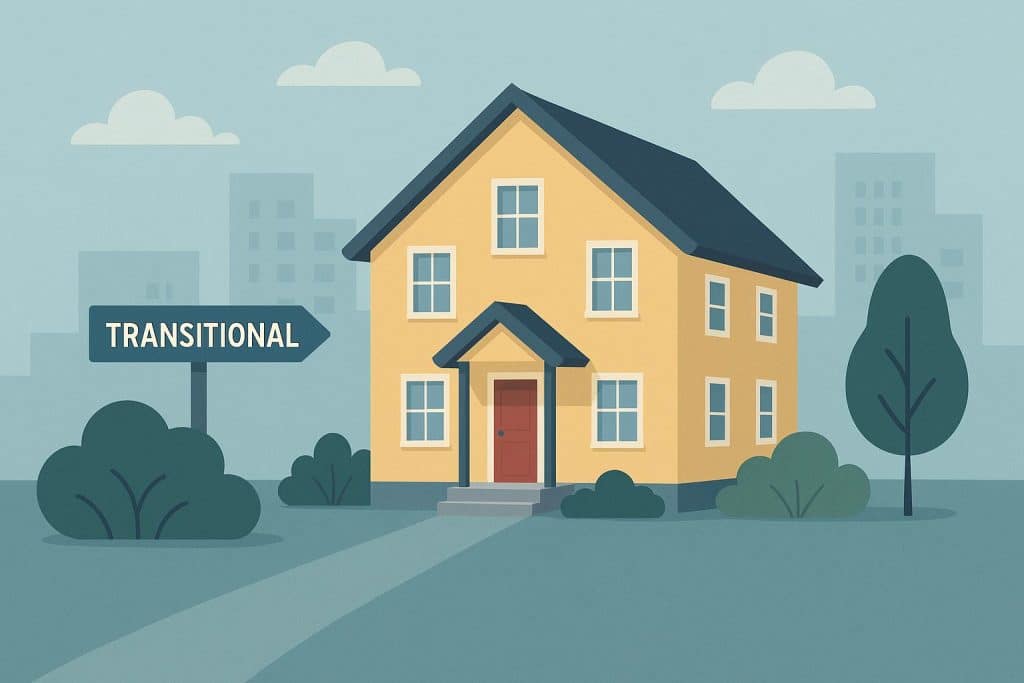Not having a steady place to sleep is a troublesome thought. Transitional housing is there to help individuals and families without a home. With clear routines and helpful guidance, people can find stability to start fresh. A roof over your head is just the beginning. This housing is an essential catalyst for individuals striving for self-reliance and residential permanency. Knowing its purpose and how well it works shows its real power.
What Is Transitional Housing?
Transitional housing offers temporary accommodation, typically six months to two years. It isn’t like a quick-stay emergency shelter. Instead, it’s a steady place that gives residents the quiet time to focus on their personal goals. It gets individuals and families settled into homes they can stay in for the long haul. You’ll often find help like guidance, skill-building workshops, and classes offered.
The Structure of Transitional Housing
Facilities vary in structure and size, from individual apartments to shared spaces. Folks living in transitional housing in Spokane have access to all the essential facilities, which makes their time here comfortable and easy. This place lets you grow on your own, yet help is always ready when you need it. Clear expectations for behavior create an environment where every person feels secure and truly valued by others.
Who Benefits from Transitional Housing?
Transitional housing is a place where families, veterans, and people overcoming addiction find a vital stepping stone. This effort also helps survivors of domestic violence and stands by young adults as they exit foster care. Every individual group comes with its own set of hurdles. Transitional housing then offers a system of specific, responsive aid designed to address those distinct requirements effectively.
Families
For families, transitional housing offers stability during difficult times. Parents receive assistance in finding employment, while children can continue their education without disruption. Imagine a safe home for your family; this facility can help.
Veterans
Veterans often face unique hurdles when reintegrating into civilian life. Veterans living in temporary homes get solid support, including therapy sessions, job-hunting help, and medical care. Veterans can get back on track and build a stable life with this support.
Survivors of Domestic Violence
For survivors of domestic violence, safety and security are paramount. People find a secure spot in this housing. It’s where they mend and truly build a fresh start. It helps you develop your own strength. You’ll gain the freedom to act independently and trust in yourself.
Young Adults Leaving Foster Care
Transitioning to adulthood can be challenging for young adults leaving foster care. Finding a home or job is tough without support. Through transitional housing, folks gain the instruction and provisions necessary for building a steady, self-governing future.
The Role of Support Services
Support services are integral to the success of transitional housing. Residents get help with all parts of their daily lives here. This complete system helps them heal up and build something new. Counseling, job training, and educational opportunities are standard offerings. Everyone here has the chance to decide what they want to accomplish. Helpful staff will actively support you in making those personal aspirations a reality.
Counseling and Mental Health Support
Mental health support is a cornerstone of transitional housing programs. Living here, people sometimes hit a wall with their feelings or thoughts. When they do, a pro’s help is essential. Counseling offers a safe spot. You can talk through problems and learn to cope.
Employment and Education
Access to job training and educational opportunities empowers residents to improve their skills and employability. Getting a college degree or mastering a trade clears the path for brighter tomorrows.
Life Skills Development
Life skills training is essential for nurturing independence. Folks here master budgeting, cooking, and managing their time. These skills are really needed to stay steady after finding a long-term home.
Challenges and Opportunities
While transitional housing offers numerous benefits, it also faces challenges. Limited funding and resources can restrict the number of people benefiting from it. However, you can secure more help from the community and local groups. When people understand why transitional housing matters, more folks step up to help, and more money comes in.
Conclusion
Transitional housing offers support, a safe sleep spot, and practical help. That’s how folks and their families stand firm for the long haul. Seeing what these programs are truly for and the good they do really makes the case for keeping them well-funded and actively supported. When people pitch in and raise awareness, transitional housing truly thrives. It gives struggling people a new start and much-needed hope.
